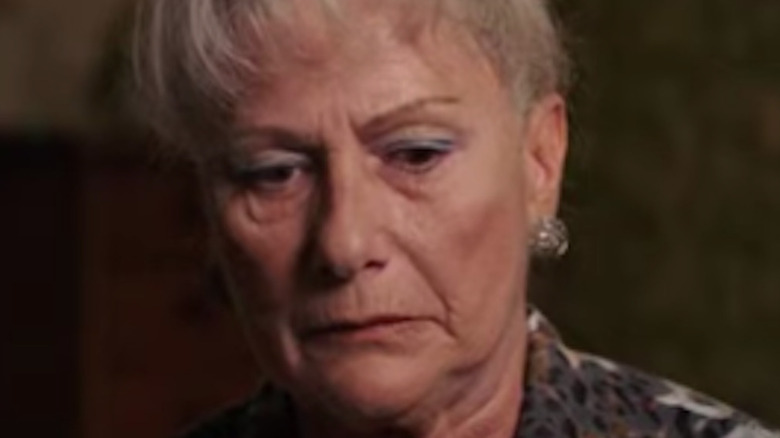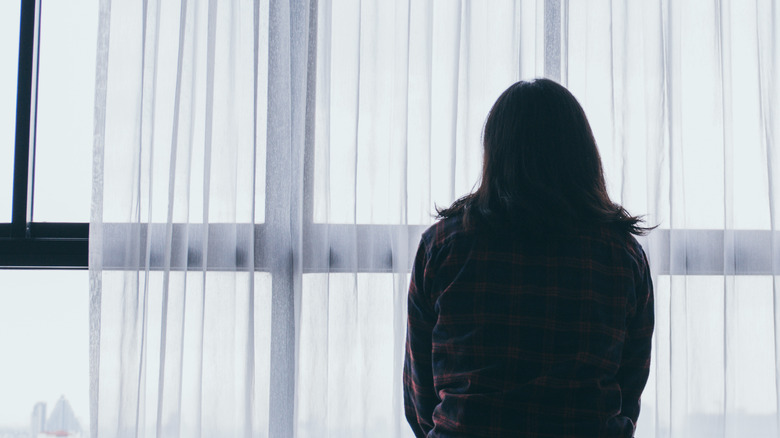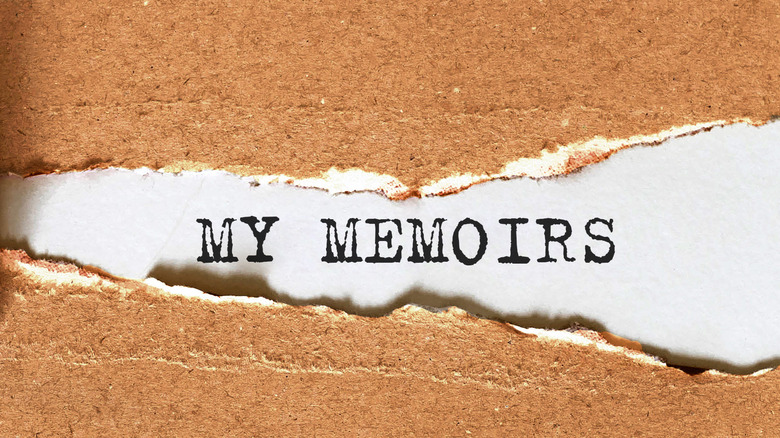What Misha And The Wolves Didn't Tell You
Netflix's latest documentary film, "Misha and the Wolves," debuted on the streaming platform on August 11. The hour-and-a-half film initially premiered at the Sundance Film Festival earlier this year and follows the story of Misha Defonseca and her Holocaust experience that shocked (and angered) the world. The initial story starts out with Defonseca, a Belgian-born, Massachusetts-based Holocaust survivor who captured the masses with the story of her 7-year-old self on the run in Europe, in search of her parents who had been taken by Nazis. On this journey, she meets wolves in the forest, and they become her family for a considerable time. It was an incredible story that became the subject of her best-selling 1997 book, "Misha: A Mémoire of the Holocaust Years."
But as it turns out, the story was actually a lie. Defonseca even turned down an opportunity to appear on Oprah to promote her story, and for good reason: She wasn't even 7 years old during her lone and brave trek to Nazi Germany. Defonseca's parents left her with her grandparents. And most of all, she wasn't even Jewish, but Catholic.
The truth all came out when the book's publisher, Jane Daniel, was sued by Defonseca in 2001 for not properly distributing royalty shares from the book. It was a big win for Defonseca, who was awarded a multi-million dollar settlement. But in the aftermath of that ruling, Daniel embarked on her own journey into Defonseca's story and learned the real truth of who she was, which became public in 2008, per Wicked Local.
Potential mental health issues could explain Defonseca's lies
Throughout the documentary, viewers get to hear different interviewees describe how Misha Defonseca's story becomes unraveled. In addition to people not wanting to question or doubt the story of a self-identified Holocaust survivor, people showed a strong desire to believe her. Defonseca was lying, but she was convincing to many people. While she later apologized for deceiving millions of readers (via Boston.com), she claimed that it was a story she conjured up and led herself to believe. "Ever since I can remember, I felt Jewish ... there are times when I find it difficult to differentiate between reality and my inner world. The story in the book is mine. It is not the actual reality — it was my reality, my way of surviving," she said.
Given that she was actually 4 years old at the time her story allegedly began, she could have fabricated the story in an attempt to process the trauma of losing her parents at a young age. According to Good Therapy, people who comfortably lie about their past are called compulsive liars, which could suggest a more significant mental health issue. Although it is not discussed in the film, nor is the subject approached, it is likely that a traumatic childhood led to Defonseca carrying on with the hoax.
If you or someone you know is struggling with mental health, please contact the Crisis Text Line by texting HOME to 741741, call the National Alliance on Mental Illness helpline at 1-800-950-NAMI (6264), or visit the National Institute of Mental Health website.
A case of fake Holocaust memoirs
When people learned that Misha Defonseca's story was false, many were surprised and upset. Media outlets from Germany and Belgium to France were shocked that this story of a young girl was all untrue. But while a lot of attention was on Defonseca's fake story in 2008, another Holocaust memoir story was exposed as a fabrication the same year. Herman Rosenblat was at the center of a lie in which he and his wife allegedly met as children in a concentration camp, per The New York Times. He conducted multiple media interviews — as Defonseca did — but unlike her, he didn't turn down Oprah. Instead, he appeared on her show twice, but Rosenblat ultimately came forth with his confession that his so-called memoir was a lie before the book could be published and distributed.
Holocaust denial is one thing, but lying about being a survivor of it is another. It is unclear why this is a common occurrence, but it seems to be quite a phenomenon. "Fragments" was another Holocaust memoir that was exposed as fraudulent in 1998 (via The Guardian), and in 2016 a Pennsylvania man admitted that he, too, lied about being in Auschwitz (per The Guardian).
Defonseca is clearly not the first or the last person to make up a Holocaust survival story. And it's possible that in the future, more confessions will come out. But there's no explanation as to why this particular aspect of history draws out fake stories.


